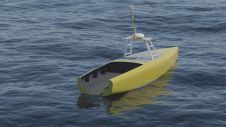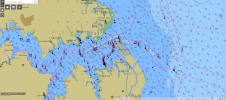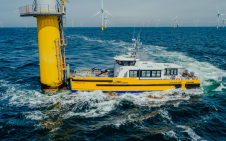Speeding up the green energy transition
In 1972, The Limits to Growth saw the light of the day, a report published by the Club of Rome. The message: to keep the Earth liveable, we must control economic growth. To think that this was half a century ago! If anything stands out today, it’s that we didn’t do anything with that warning; we simply persisted in the same old way. Meanwhile, however, the Earth’s atmosphere is warming as we burn more and more fossil fuels that are still available in huge amounts; amounts that turned out to be much greater than those assumed by the Club of Rome.
The inconvenient truth about climate change policy
Twenty years after the publication that caused so much commotion, Dennis L. Meadows, Donella H. Meadows and Jørgen Randers, three of the report’s authors, wrote a book that can safely be described as its successor. The alarm bells resonate in the title: Beyond the Limits. However, the book didn’t cause nearly as much of a stir as its predecessor. While things were in many ways worse than 20 years earlier, the world was in a good mood in the early 1990s; the Cold War was over and the economic boom was gently blossoming, and criticism of the downsides to unprecedented growth was not a story that the world was eager for.
A few years earlier, in 1988, the Intergovernmental Panel on Climate Change (IPCC) was established. Its first overview report was published in 1990. The scientists wrote that they were pretty sure that human activity was significantly increasing the concentration of greenhouse gases, leading to rising temperatures. The exact consequences of this were still uncertain, but the message was loud and clear: Planet Earth is likely to face a lot of trouble if no action is taken.
Since then, international meetings have been held on climate change for more than 30 years. Over the same period, annual greenhouse gas emissions have increased by 50%. One could wonder if there is any point to those climate summits; it’s almost impossible not to be sceptical. To be fair, significant steps have been taken over the past years, but the inconvenient truth is that noble words have been followed by scant action.
“The Glasgow Climate Pact: A disturbing outcome and some bright spots”, was the headline of Kees Vendrik’s, chief economist of the Triodos Bank – a Dutch bank from the ethical banking movement – analysis of COP26, the climate summit in Glasgow, Scotland. “The world did not fulfil its moral obligation to put together an ambitious plan to prevent catastrophic climate change,” he stated.
Will Putin boost transition towards renewable energies?
Sometimes, a single event appears to be the sudden burst of acceleration that causes a revolution. Such an event may well be the brutal invasion of the Putin regime in Ukraine. Of course, one of the pitfalls of writing an editorial is dwelling on current events, but things could begin to move very fast, as the dependency of many Western countries on Russian gas and oil is suddenly felt as a heavy burden. Relying on energy resources from Russia means in practice that many European countries are being held hostage by a corrupt administration that makes a mockery of international treaties.
Making headway in ending the energy system’s dependency on Russian gas will inevitably catapult the transition towards renewable sources such as wind and solar. It is therefore a case of one man’s loss being another man’s gain. For the hydrographic industry, this means the possibility of even more projects on the horizon.
Every year, Hydro International conducts an industry survey among hydrographic professionals. This year’s edition revealed a number of striking trend shifts, with offshore wind as the key growth market. The brutal Russian invasion in Ukraine will accelerate the energy transition, resulting in many more survey activities, in particular for offshore wind farms. This, in turn, will lead to an even greater need for hydrographic surveyors. There are therefore many challenges ahead for our sector!
Half a century after the Club of Rome released its alarming report, the move towards a sustainable world is finally being set in motion. Endless studies, surveys and reports from experts, round table meetings and conferences may be less effective than a reckless irresponsible act of disproportionate aggression that shook the foundations of the world community, we could – a bit short-sightedly, perhaps – cynically conclude. Let’s see how well this editorial will age.


Value staying current with hydrography?
Stay on the map with our expertly curated newsletters.
We provide educational insights, industry updates, and inspiring stories from the world of hydrography to help you learn, grow, and navigate your field with confidence. Don't miss out - subscribe today and ensure you're always informed, educated, and inspired by the latest in hydrographic technology and research.
Choose your newsletter(s)
























